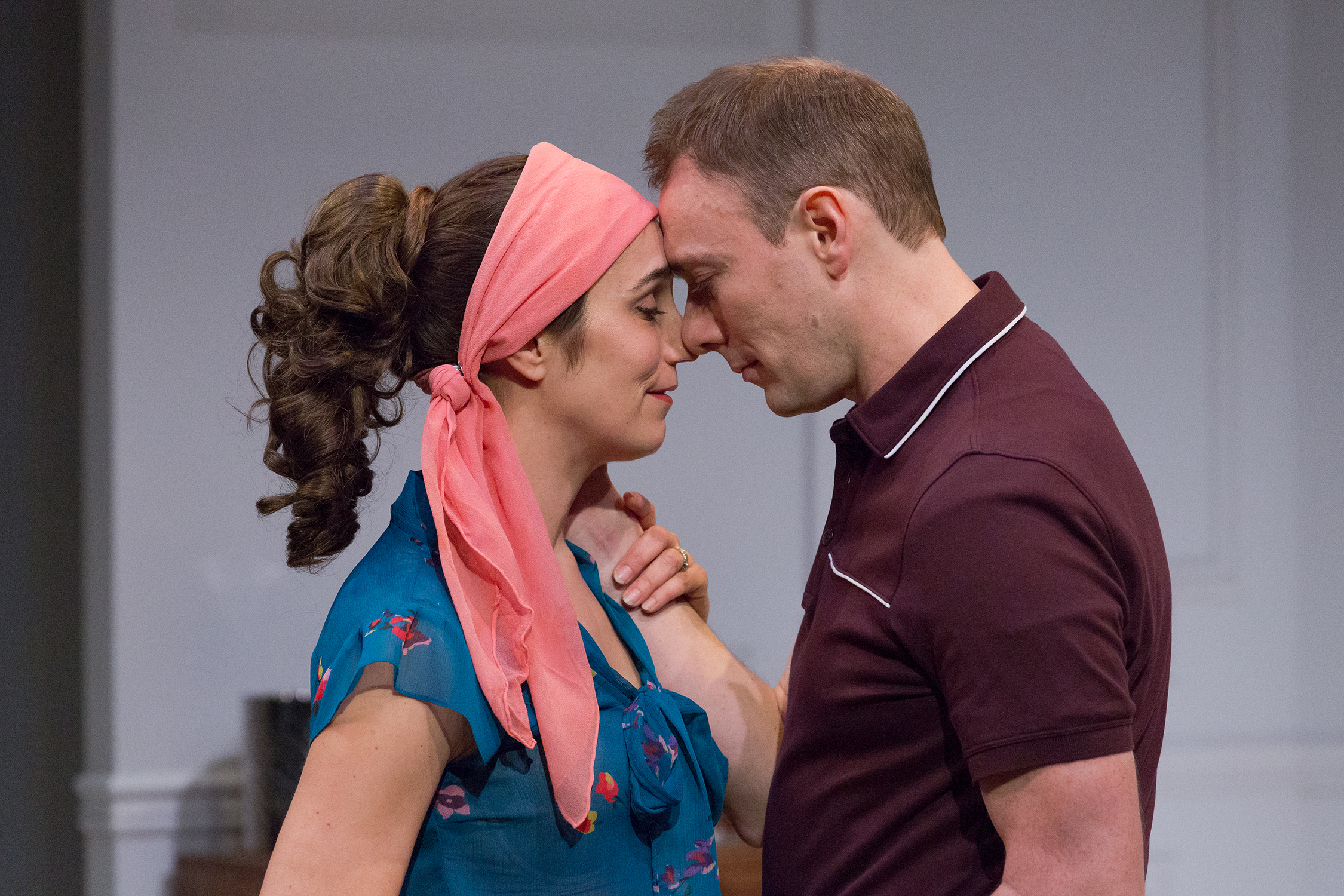
The Lantern Theater production has top notch actors (Jered McLenigan, Gregory Isaac, Genevieve Perrier, and Ryan Hagan). And a fine director Kathryn MacMillan, who has made some strange choices, i.e., slowing down the dialogue to a ponderous considering of answers rather than straight give and take, and she has inserted an intrusive intermission in a 95-minute show.
This piece is not a review of the Lantern production, however. It’s a different take, an attempt to detangle this 9-scene play that’s designed to move backwards except for 3 scenes that move forward. A devil of a play to figure out, it’s like following breadcrumbs through the woods. The characters on stage include two men who are best friends (both married), one wife, and a waiter. Never seen are the other wife, children, a couple of writers and others. Both wives are cheating on their husbands and both husbands are cheating on their wives. But this isn’t a story about divorce. The play’s divorced couple had been unfaithful and unhappy for years. [Harold Pinter dismissed the prevailing notion that the breakup of his own marriage and his affair were behind this play, saying, “Well that’s really nonsense. It has nothing to do with the play.”]
Betrayal documents the slow unraveling of a beautiful friendship. Robert is married to Emma, who is having an affair with Jerry, her husband’s closest friend. Robert doesn’t love Emma, but Jerry does. In a key incident Robert discovers that Jerry has sent her a letter. He questions Emma about it, and she confesses to the affair. Robert is upset. Why? Because Jerry sent a love note to his wife? No. Rather, because it used to be that Jerry would exchange long letters with him: “He used to write to me at one time. Long letters about Ford Madox Ford. …” Robert insists, “We were close friends. We still are close friends.”
Emma sees that her husband’s best friend is more important to him than she is. It’s distressing. She has told Robert about her affair with Jerry, and he doesn’t really seem to mind that much. What he does mind is that she’s taking Jerry’s attention away from him. He tells her: “I’ve always liked Jerry… I’ve always liked him rather more than I’ve liked you. Maybe I should have had an affair with him myself.” Once, over dinner with Jerry, Robert discloses that when he and Emma took a vacation, his favorite part of the trip was when he was alone. He sat on the ground and read Yeats, as he and Jerry used to do.
Robert wants to hang out with Jerry likethey did in the old days. They miss their weekly Squash games. Their fun ended after the affair started. Robert tries to get Jerry into a Squash game with guy talk: “First there’s the game. and then there’s the shower. And then there’s the pint. And there’s lunch. … You don’t actually want a woman within a mile of the place.” But Jerry says he can’t make it. Even as Jerry is betraying Robert he feels betrayed by Robert. Why? Because he has found out that his best friend didn’t tell him that he actually had long known about his affair with Emma.
Betrayal reveals the dismantling of a long friendship. At the start— in this case that means at the end of the play— Jerry says: “You are my best and oldest friend.” Much later, near the very end— which is the start of the play— Jerry hasn’t seen Robert in a while. He says: “We were such close friends, weren’t we?” and “He was my oldest friend.”
In 1979 when New York Times critic and cultural reporter, Mel Gussow, interviewed him about Betrayal. Harold Pinter said, “The play is about a nine year relationship between two men who are best friends.”
[Lantern Theater Company at St. Stephen’s Theater, 10th and Ludlow streets] January 10-February 17, 2019; lanterntheater.org
